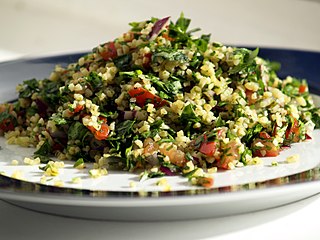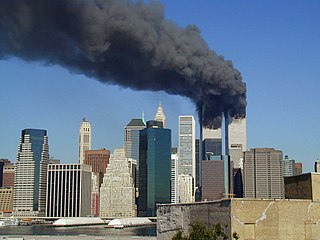
Gautama Buddha was an ascetic and spiritual teacher of South Asia who lived during the latter half of the first millennium BCE. He was the founder of Buddhism and is revered by Buddhists as a fully enlightened being who taught a path to Nirvana, freedom from ignorance, craving, rebirth and suffering.

A computer program is a sequence or set of instructions in a programming language for a computer to execute. Computer programs are one component of software, which also includes documentation and other intangible components.

George Harrison was an English musician and singer-songwriter who achieved international fame as the lead guitarist of the Beatles. Sometimes called "the quiet Beatle", Harrison embraced Indian culture and helped broaden the scope of popular music through his incorporation of Indian instrumentation and Hindu-aligned spirituality in the Beatles' work. Although the majority of the band's songs were written by John Lennon and Paul McCartney, most Beatles albums from 1965 onwards contained at least two Harrison compositions. His songs for the group include "Taxman", "Within You Without You", "While My Guitar Gently Weeps", "Here Comes the Sun" and "Something".

Howard Phillips Lovecraft was an American writer of weird, science, fantasy, and horror fiction. He is best known for his creation of the Cthulhu Mythos.

India, officially the Republic of India, is a country in South Asia. It is the seventh-largest country by area, the second-most populous country, and the most populous democracy in the world. Bounded by the Indian Ocean on the south, the Arabian Sea on the southwest, and the Bay of Bengal on the southeast, it shares land borders with Pakistan to the west; China, Nepal, and Bhutan to the north; and Bangladesh and Myanmar to the east. In the Indian Ocean, India is in the vicinity of Sri Lanka and the Maldives; its Andaman and Nicobar Islands share a maritime border with Thailand, Myanmar and Indonesia.

Karl Heinrich Marx was a German philosopher, critic of political economy, economist, historian, sociologist, political theorist, journalist and socialist revolutionary. His best-known titles are the 1848 pamphlet The Communist Manifesto and the four-volume Das Kapital (1867–1883). Marx's political and philosophical thought had enormous influence on subsequent intellectual, economic, and political history. His name has been used as an adjective, a noun, and a school of social theory.

Marilyn Monroe was an American actress, singer, and model. Famous for playing comedic "blonde bombshell" characters, she became one of the most popular sex symbols of the 1950s and early 1960s, as well as an emblem of the era's sexual revolution. She was a top-billed actress for a decade, and her films grossed $200 million by the time of her death in 1962. Long after her death, Monroe remains a major icon of pop culture. In 1999, the American Film Institute ranked her sixth on their list of the greatest female screen legends from the Golden Age of Hollywood.

The Oklahoma City bombing was a domestic terrorist truck bombing of the Alfred P. Murrah Federal Building in Oklahoma City, Oklahoma, United States, on April 19, 1995. Perpetrated by two anti-government extremists Timothy McVeigh and Terry Nichols, the bombing happened at 9:02 a.m. and killed at least 168 people, injured more than 680 others, and destroyed more than one-third of the building, which had to be demolished. The blast destroyed or damaged 324 other buildings within a 16-block radius, shattered glass in 258 nearby buildings, and destroyed or burned 86 cars, causing an estimated $652 million worth of damage. Local, state, federal, and worldwide agencies engaged in extensive rescue efforts in the wake of the bombing. The Federal Emergency Management Agency (FEMA) activated 11 of its Urban Search and Rescue Task Forces, consisting of 665 rescue workers who assisted in rescue and recovery operations. The Oklahoma City bombing remains the deadliest act of domestic terrorism in U.S. history.

William Shakespeare was an English playwright, poet and actor. He is widely regarded as the greatest writer in the English language and the world's greatest dramatist. He is often called England's national poet and the "Bard of Avon". His extant works, including collaborations, consist of some 39 plays, 154 sonnets, three long narrative poems, and a few other verses, some of uncertain authorship. His plays have been translated into every major living language and are performed more often than those of any other playwright. He remains arguably the most influential writer in the English language, and his works continue to be studied and reinterpreted.

World War II or the Second World War, often abbreviated as WWII or WW2, was a global war that lasted from 1939 to 1945. It involved the vast majority of the world's countries—including all of the great powers—forming two opposing military alliances: the Allies and the Axis powers. In a total war directly involving more than 100 million personnel from more than 30 countries, the major participants threw their entire economic, industrial, and scientific capabilities behind the war effort, blurring the distinction between civilian and military resources. Aircraft played a major role in the conflict, enabling the strategic bombing of population centres and the only two uses of nuclear weapons in war. World War II was by far the deadliest conflict in human history; it resulted in 70 to 85 million fatalities, a majority being civilians. Tens of millions of people died due to genocides, starvation, massacres, and disease. In the wake of the Axis defeat, Germany and Japan were occupied, and war crimes tribunals were conducted against German and Japanese leaders.

Sir Winston Leonard Spencer Churchill, was a British statesman, soldier and writer who served as Prime Minister of the United Kingdom from 1940 to 1945, during the Second World War, and again from 1951 to 1955. Apart from two years between 1922 and 1924, he was a Member of Parliament (MP) from 1900 to 1964 and represented a total of five constituencies. Ideologically an economic liberal and imperialist, he was for most of his career a member of the Conservative Party, which he led from 1940 to 1955. He was a member of the Liberal Party from 1904 to 1924.

Yahweh was the national god of ancient Israel and Judah. The origins of his worship reach at least to the early Iron Age, and likely to the Late Bronze Age if not somewhat earlier. In the oldest biblical literature he possesses attributes typically ascribed to weather and war deities, fructifying the land and leading the heavenly army against Israel's enemies. Most scholars are of the view that at that time the Israelites were polytheistic and worshipped him alongside a variety of Canaanite gods and goddesses, including El, Asherah and Baal. In later centuries, El and Yahweh became conflated and El-linked epithets such as El Shaddai came to be applied to Yahweh alone, and other gods and goddesses such as Baal and Asherah were absorbed into Yahwist religion. According to other scholars, however, the exclusive worship of Yahweh was widespread before the Babylonian exile, and such Israelite monolatry may have even existed before the rise of the United Monarchy. In Iron Age I, Yahweh's cult center appears to have been Shiloh; by Iron Age II, it had been supplanted by Jerusalem, where the deity was enshrined in a Temple containing the Ark of the Covenant.

Marie Antoinette Josèphe Jeanne was the last Queen of France before the French Revolution. She was born an Archduchess of Austria, and was the penultimate child and youngest daughter of Empress Maria Theresa and Emperor Francis I. She became dauphine of France in May 1770 at age 14 upon her marriage to Louis-Auguste, heir apparent to the French throne. On 10 May 1774, her husband ascended the throne as Louis XVI and she became queen.

Tabbouleh is a Levantine salad made mostly of finely chopped parsley, with tomatoes, mint, onion, bulgur, and seasoned with olive oil, lemon juice, salt and sweet pepper. Some variations add lettuce, or use semolina instead of bulgur.

The September 11 attacks, commonly known as 9/11, were a series of four coordinated suicide terrorist attacks carried out by the militant Islamic extremist network al-Qaeda against the United States. On the morning of Tuesday, September 11, 2001, nineteen terrorists hijacked four commercial airliners mid-flight while traveling from the northeastern U.S. to California. The attackers were organized into three groups of five members and one group of four, with each group including one designated flight-trained hijacker who took control of the aircraft. Their goal was to crash the planes into prominent American buildings, inflicting mass casualties and major structural damage. The hijackers successfully crashed the first two planes into the North and South Towers of the World Trade Center in New York City, and the third plane into the Pentagon in Arlington, Virginia. The fourth plane was intended to hit a federal government building in Washington, D.C., but instead crashed down in a field outside Shanksville, Pennsylvania, following a passenger revolt that foiled the attack.

Edward the Elder was King of the Anglo-Saxons from 899 until his death in 924. He was the elder son of Alfred the Great and his wife Ealhswith. When Edward succeeded to the throne, he had to defeat a challenge from his cousin Æthelwold, who had a strong claim to the throne as the son of Alfred's elder brother and predecessor, Æthelred I.

The Holocaust, also known as the Shoah, was the genocide of European Jews during World War II. Between 1941 and 1945, Nazi Germany and its collaborators systematically murdered some six million Jews across German-occupied Europe; around two-thirds of Europe's Jewish population. The murders were carried out in pogroms and mass shootings; by a policy of extermination through labor in concentration camps; and in gas chambers and gas vans in German extermination camps, chiefly Auschwitz-Birkenau, Bełżec, Chełmno, Majdanek, Sobibór, and Treblinka in occupied Poland.

The raccoon, sometimes called the common raccoon to distinguish it from other species, is a mammal native to North America. It is the largest of the procyonid family, having a body length of 40 to 70 cm, and a body weight of 5 to 26 kg. Its grayish coat mostly consists of dense underfur, which insulates it against cold weather. Three of the raccoon's most distinctive features are its extremely dexterous front paws, its facial mask, and its ringed tail, which are themes in the mythologies of the indigenous peoples of the Americas relating to the animal. The raccoon is noted for its intelligence, as studies show that it is able to remember the solution to tasks for at least three years. It is usually nocturnal and omnivorous, eating about 40% invertebrates, 33% plants, and 27% vertebrates.

Norse or Scandinavian mythology is the body of myths of the North Germanic peoples, stemming from Norse paganism and continuing after the Christianization of Scandinavia, and into the Scandinavian folklore of the modern period. The northernmost extension of Germanic mythology and stemming from Proto-Germanic folklore, Norse mythology consists of tales of various deities, beings, and heroes derived from numerous sources from both before and after the pagan period, including medieval manuscripts, archaeological representations, and folk tradition.

2001: A Space Odyssey is a 1968 epic science fiction film produced and directed by Stanley Kubrick. The screenplay was written by Kubrick and science fiction author Arthur C. Clarke, and was inspired by Clarke's 1951 short story "The Sentinel" and other short stories by Clarke. Clarke also developed a novelisation of the film, which was released after the film's release, and in part written concurrently with the screenplay. The film stars Keir Dullea, Gary Lockwood, William Sylvester, and Douglas Rain, and follows a voyage to Jupiter with the sentient supercomputer HAL after the discovery of an alien monolith.




















